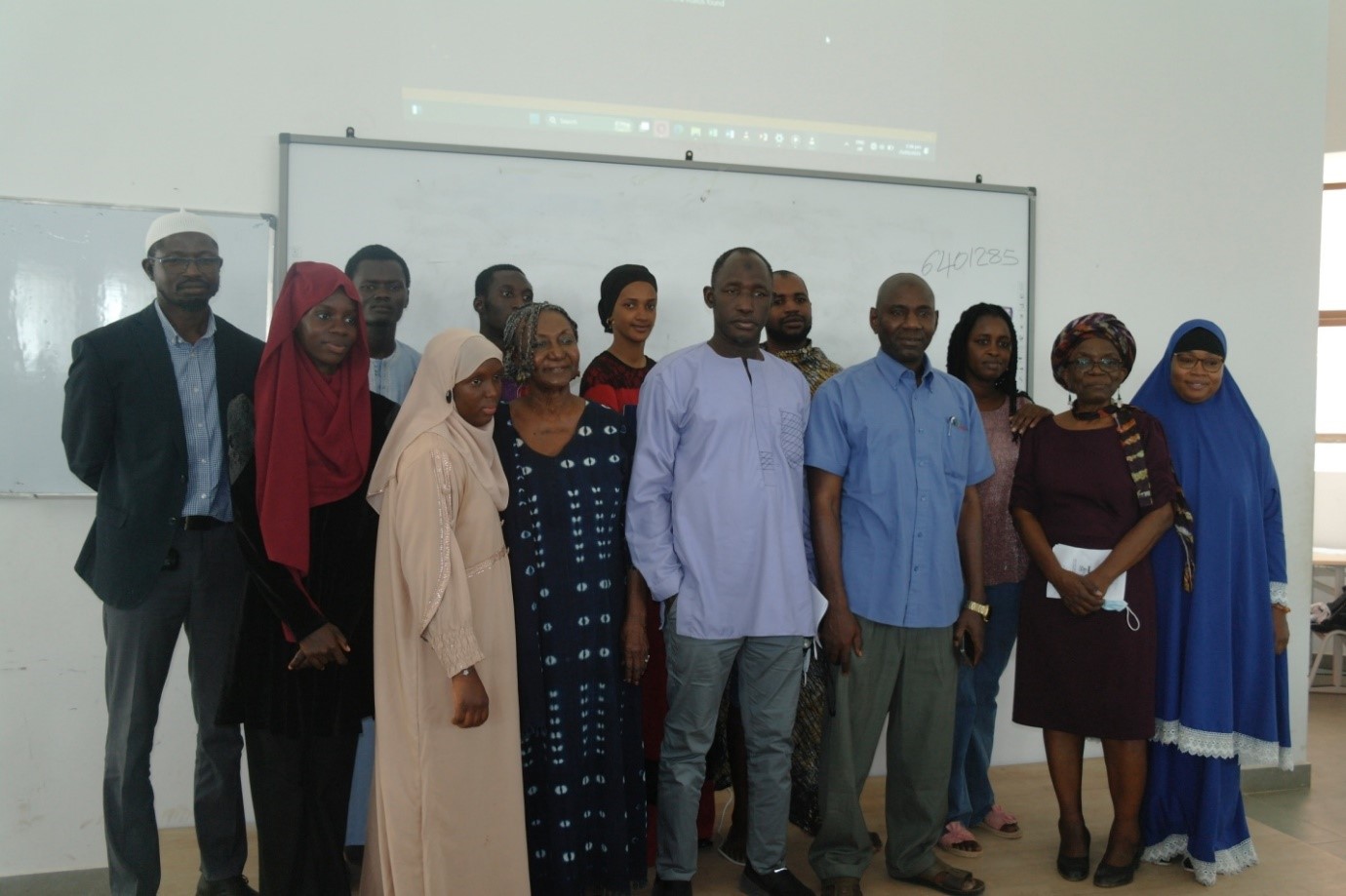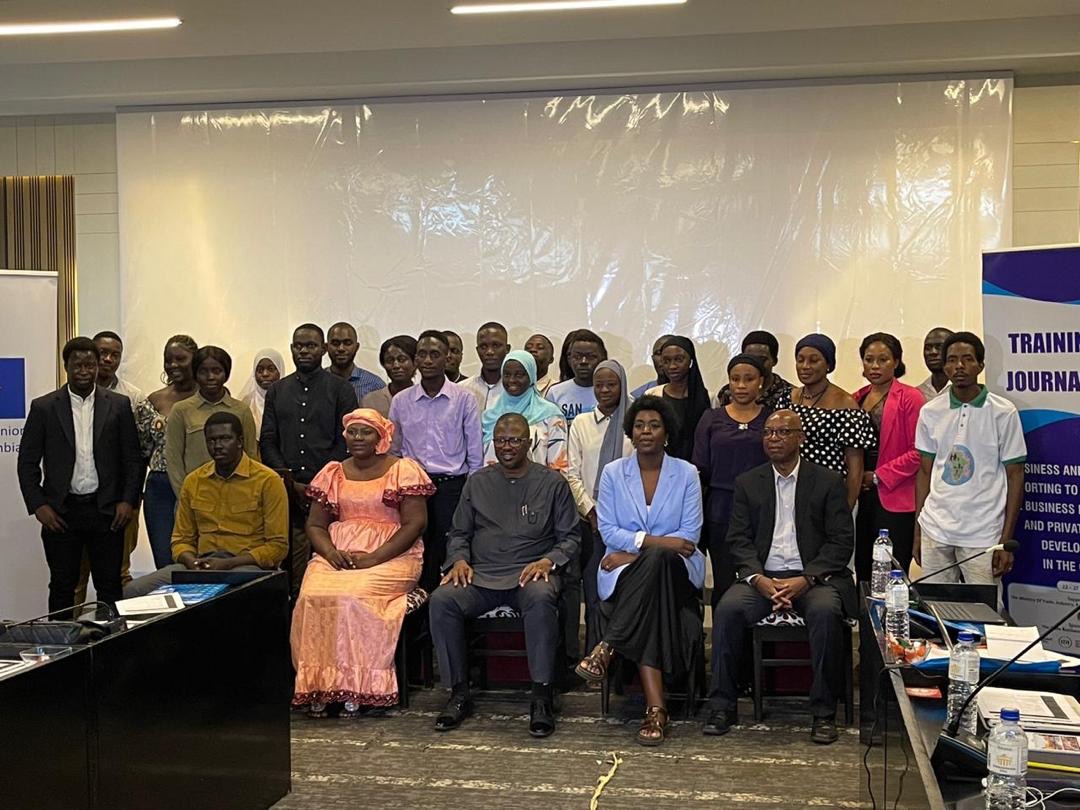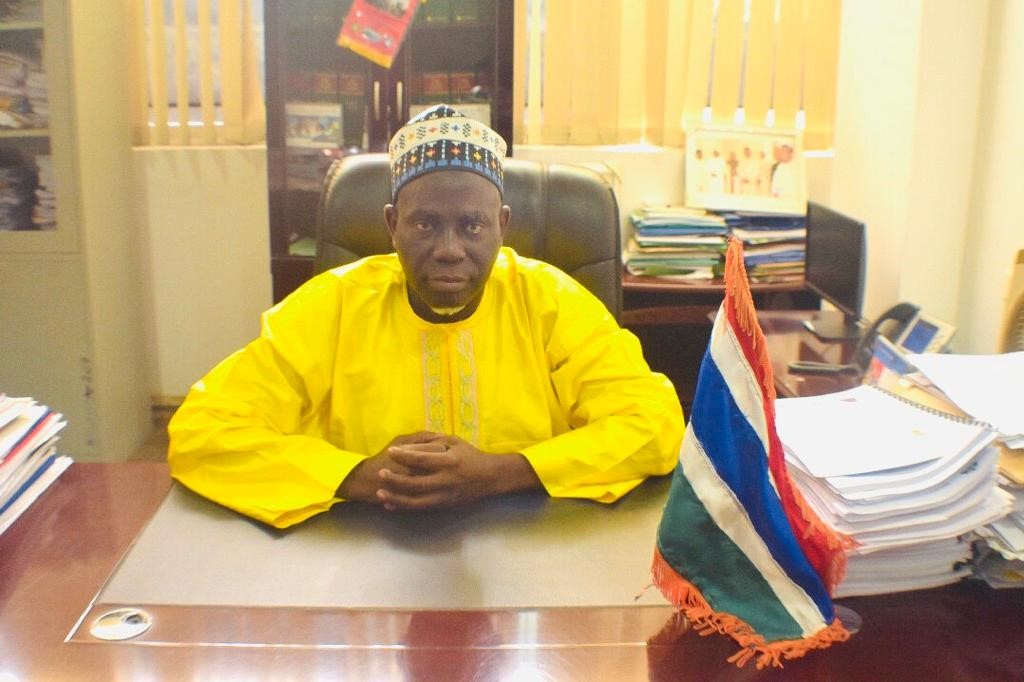By Yunus S. Saliu
Students of the University of The Gambia (UTG) School of Arts and Sciences Theatre-in-Education (TIE) Literature Programme marked UNESCO’s International Day of Remembrance for the Victims of Slavery and the Transatlantic Slave Trade on Tuesday, 25th March 2025.
The commemoration, held at Theatre 2 in the School of Arts and Sciences, UTG, Faraba Banta Campus, focused on analyzing and dramatizing the history of the Transatlantic Slave Trade.
Distinguished dignitaries who joined the students in honoring this significant day included Janet Badjan-Young, a playwright and Artistic Director, also the proprietress of Ebunjan Theatre; LaminJarjou, Senior Programme Manager at the National Commission for UNESCO; Dr. Malang Fanneh, Associate Professor and Dean of the School of Arts and Sciences; and Dr. EnsaTouray, also an Associate Professor at the School of Arts and Sciences, University of The Gambia.
The commemoration featured a variety of activities, including speeches from distinguished speakers. Janet Badjan-Young delivered a presentation on writing and directing Chains of Inspiration, providing insight into her creative process. Dr. Malang Fanneh offered a historical analysis of dramatic literature, while Dr. EnsaTouray presented an overview of the Transatlantic Slave Trade. The event also included an exhibition of books and photographs.

The audience was further entertained by performances from the UTG TIE Troupe, directed by Grace Chapman, a lecturer and director of the Theatre-in-Education Literature Program at UTG. The troupe performed poems such as Still I Rise and We Wear the Mask, as well as excerpts from Chains of Inspiration (a book) and Roots (a film).
Janet Badjan-Young focused her analysis on the play Chains of Inspiration, while Dr. Malang Fanneh and Dr. EnsaTouray examined the characters impacted by the Transatlantic Slave Trade.
In her address, Janet Badjan-Young, affectionately known as Aunty Janet, reminded the audience that history is the study of the past — the story of who we are, where we come from, and a potential indicator of where we are heading. She emphasized the significance of slavery in African history, explaining how European settlers, upon arriving in Africa, were struck by the abundance of natural resources such as gold, precious stones, fruit-bearing trees, fish, and rivers. She noted that these settlers decided to exploit these riches for their benefit, leading to the forced removal of Africans and the establishment of slavery.





